The Londoners who are on service charge ‘strike’
Tarah Welsh, BBC London https://www.bbc.co.uk/news/articles/ce7x901l8pko

Last week, BBC London reported on the soaring service charges faced by tenants and residents, some of whom have seen their monthly bill rise by hundreds of pounds in a few years.
A picture emerged of people who are at the end of their tether over the often-opaque and spiralling service charges – the sum that goes towards the upkeep of the building and other communal areas – which some fear will cause them to lose their homes.
In two housing blocks in east London, residents are taking matters into their own hands by refusing to pay the charge at all.
“I’m not giving up,” Jakia Begum says.
She is referring to a two-year battle she is in with her landlord, the housing association Tower Hamlets Community Housing (THCH), over service charge rises.
Jakia lives in a two-bedroom rental flat in a high-rise block in Bethnal Green, east London, and says she is “exhausted” with the fight.
“The mental pressure and anxiety, every single day. I can’t even sleep because I’m too overwhelmed with so much stress. Sometimes I feel shattered. I feel lost.”
Along with about 15 other tenants, she has been on service charge “strike” since April 2022, which means she has been withholding payment because she feels the hikes in her service charge are unjustified.
In 2023, it rose by 36.6% but she says it is impossible to get clarity about why. Jakia says they have been charged for work or services that have not been done or cannot be proven to have been done.
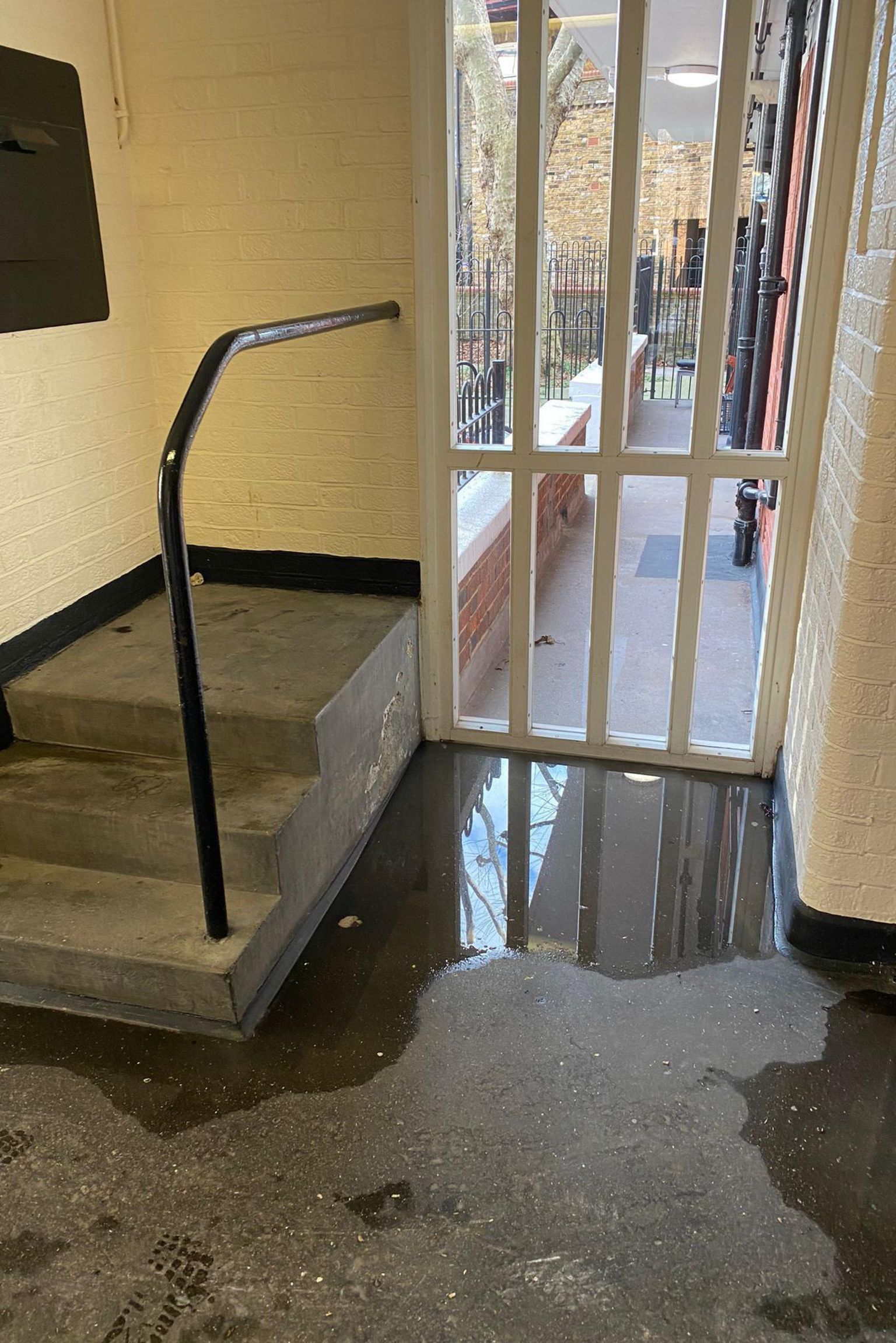
In addition to the soaring service charge, she says there is another issue: charges for communal heating. Jakia says the cost went from £42 a week in 2022 to £88 a week in 2023.
Having communal heating inside their homes means individuals cannot move between energy providers and she says she has to pay the fixed sum regardless of whether she uses the heating, which leaves her feeling like she has “no control”.
“From May to October, the heating is off because it’s very warm, but we are still having to pay for the heating and we totally disagree with this,” Jakia says. “It is not fair. Plus the amount is astronomical. It’s just outrageous.”
The working mother of two says she has also been paying twice for her hot water – once to her landlord and again to her energy provider. She says the issue is indicative of the accounting at the housing association, whose bills “don’t make sense”.
THCH says it has investigated the issue with the supply of electricity to the hot-water system at Jakia’s home and has offered reimbursement for “potential oversight”.
It says the hike in heating costs is a result of “soaring energy prices” and, from August, residents will be able to choose their own heating provider.
https://emp.bbc.co.uk/emp/SMPj/2.51.0/iframe.htmlMedia caption,
A drain pipe is overflowing in Gaz Rahman’s building
While Jakia rents her property from THCH, Gaz Rahman is a THCH leaseholder in a nearby building, and is also on strike.
He also feels that no reasonable justification has been provided for any rise in charges.
He says he gets “no service” for the charge of more than £2,750 a year, with “constant” leaks and disrepair evidence of that. He says leaks have plagued his property for years, yet his service charges keep rising.
He adds his block has been charged for window cleaning when there are no communal windows and “concierge and security” appears on his bill when he says there is no such service.
THCH says the charge is for security including a neighbourhood patrol.
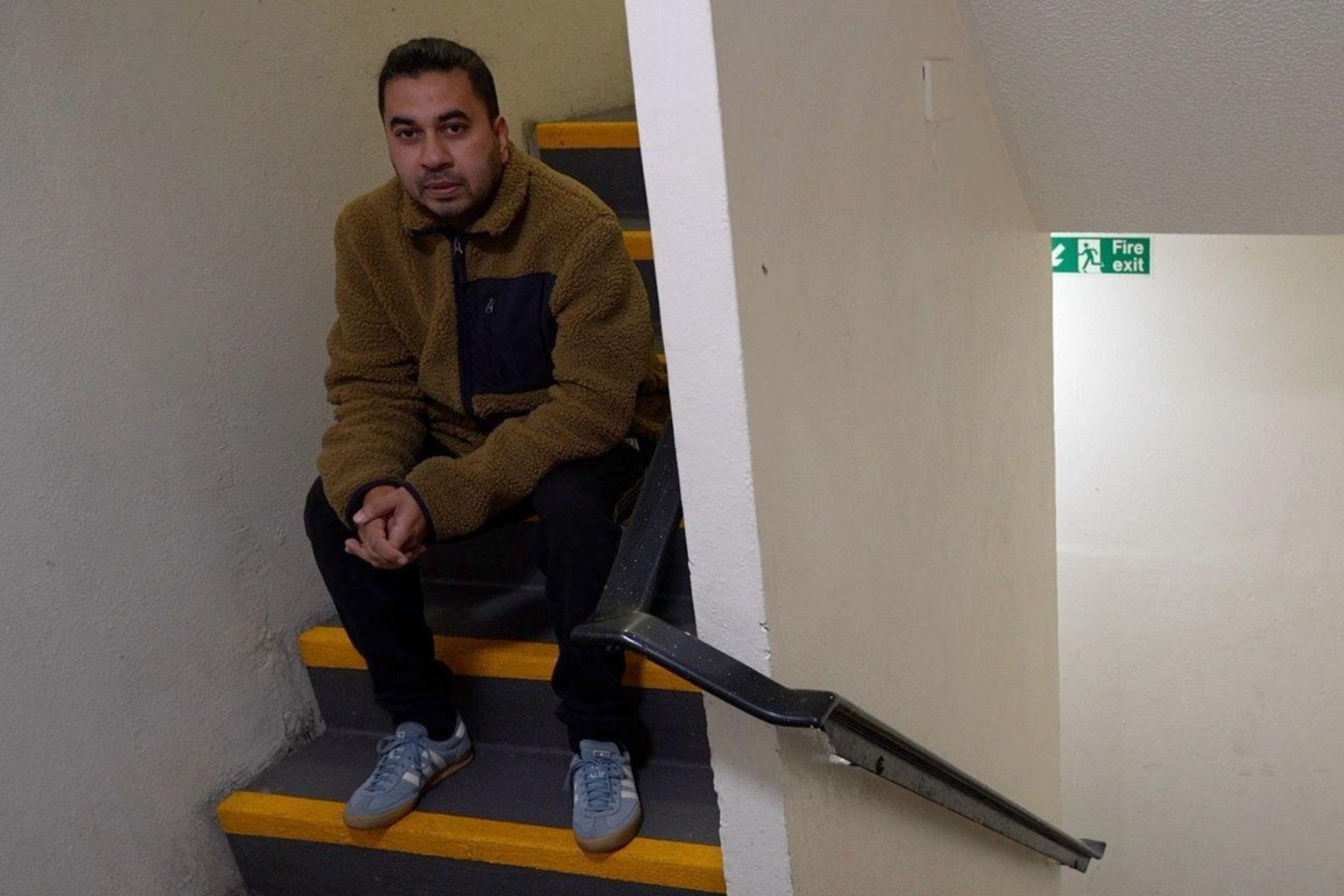
THCH said in a statement: “We understand the financial strain many households are experiencing and offer support to those facing difficulties.
“As a not-for-profit organisation, our service charges reflect the real costs of delivering services, adjusted for inflation and the economic climate.
“This year, service charges have increased by an average of 3%.”
THCH said it was “always looking” to improve its services and communication, and an independently audited process ensured leaseholders only paid for the services they received.
“We’ve provided more detailed breakdowns, conducted thorough reviews of historic charges and consulted with residents on the removal of optional services, significantly reducing costs for some social housing residents,” its statement added.
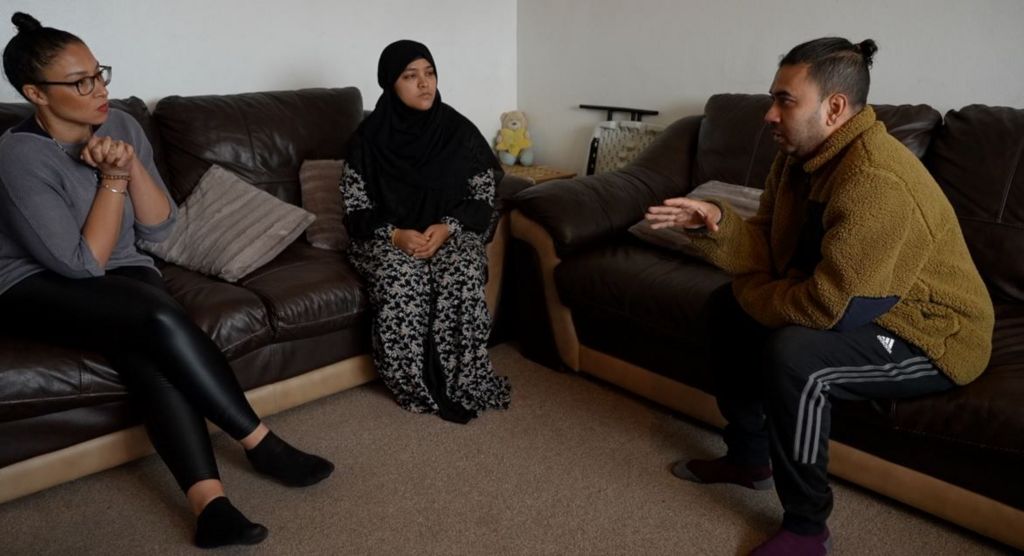
Both Gaz and Jakia say they have been threatened with legal action for withholding payment but they are among a growing number of strikers who have had enough of “unfair” and “unjustified” service charges.
THCH says failing to pay service charges could result in tenancy or lease agreement breaches.
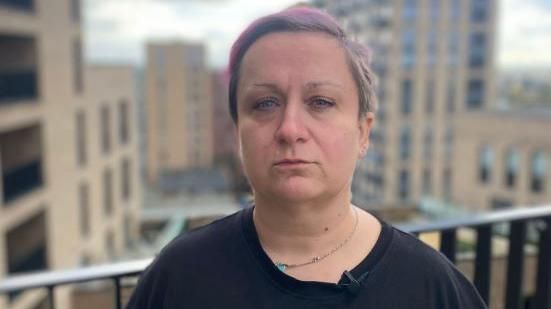
Elsewhere, Kasia Tarka says when she bought her one-bedroom shared-ownership flat from Clarion in 2020 she was thrilled, as it had been a lifelong goal to own her own property. But last year, her service charge bill went up by 63% year on year.
“When I got the letter, I was in disbelief. It’s gone up from roughly £65 per month to £210 per month.”
Kasia, who lives in Southall, west London, says there have been numerous issues with problems not being fixed, with faulty entry doors, and with vandalism going unrepaired, and she says some services simply are not being provided.

She says the breakdown of costs does not equate to the work that has been done.
For example, she says her block has been charged £5,000 annually for cleaning a handful of small communal windows – which she says have never been cleaned.
“It’s criminal, what’s happening. And it is heartbreaking, because this was meant to be my home – a new start for me – and it’s been really hard. It’s been really, really hard.”
Kasia, who is recovering from cancer, says the dispute has taken a massive toll on her well-being as she spends most of her spare time trying to get answers.
She has formed a residents’ association so they can make challenges as a group and says 24 flats in her block are now on service charge strike.

A Clarion Housing spokesperson said the issues were being taken “very seriously”.
“To clarify, Clarion are leaseholders of (the building) and, under the terms of the lease, the management company are responsible for maintaining all communal areas through their managing agents,” the spokesperson said.
“While we are constrained by legal arrangements, we have been working closely with residents and actively working on their behalf to ensure that issues are addressed properly and promptly.”
‘Sense of injustice’
Social Housing Action Campaign (SHAC), a lobbying group for housing residents that campaigns for lower service charges, says more residents are fighting back.
SHAC’s Suzanne Muna estimates at least 1,000 people have complained to them about rising service charges and the organisation has supported 600 residents to withhold all or some of their payments until their bills are explained satisfactorily.
She says it is not just individuals, either – entire estates are now refusing to pay the service charge.
“We are seeing this growing and I think it is that sense of injustice. The cost-of-living crisis is really pushing people so that they have to account for every penny,” she says.
“And why should they pay out thousands of pounds when the the landlord cannot show that money is legitimately due to them?”
Tenancy agreement
Leasehold property owners and some renters usually pay a service charge to their building’s freeholder or management company for shared services such as cleaning, repairs, maintenance and insurance.
There is no cap on these charges and paying them is usually a condition of the lease or tenancy agreement.
Refusing to pay a service charge can lead to tenants being evicted, but SHAC says the system is set up so the onus is on the tenant to challenge the charge after being forced to pay it, which she says is wrong.
“In Spain you can pay any disputed amount into the court to show that you are willing to pay for any charges that are legitimate,” Suzanne says.
“But the landlord doesn’t get that money until that dispute has been resolved, and it gives them an incentive to actually resolve it.”

Tenants can face eviction for not paying their service charge but for leaseholders the consequences can be even more serious.
Martin Boyd, chair of the Leasehold Advisory Service, strongly advises leaseholders against not paying their service charge bills. He says, pay first, then dispute.
“It can be very dangerous if you don’t pay, he says.
“Because the landlord simply goes out and pays very expensive lawyers to make sure they get the money out of you.”
“There is this awful problem that the landlord can very likely recover all of their costs from you for pursuing that debt.”
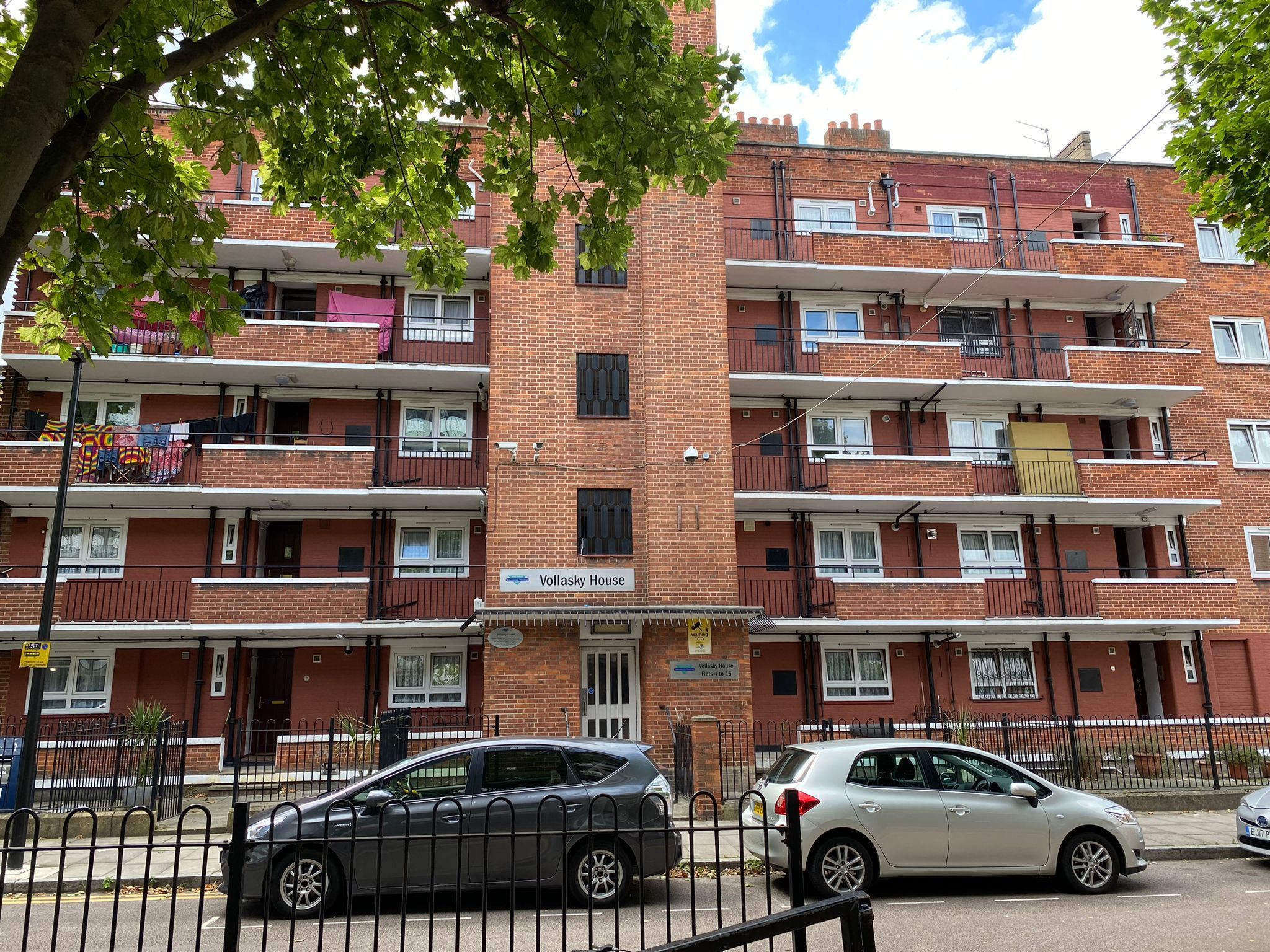
Anyone who owes service charges can face the prospect of their home being taken by the freeholder to cover the debt, in a process called forfeiture.
It means any debt owed to a freeholder of more than £350 could potentially recovered by the freeholder starting court proceedings to take the property. The average flat in London cost more than £560,000 last year., external
Jack Spearman, from the Residential Freehold Association, a trade body representing freeholders, says the “windfall” nature of the practice is “unjust” but landlords do need a way to recover debts.
But for tenants and leaseholders, challenging service charges can be a lengthy and expensive process.
If a service charge is disputed, it is the resident who needs to pay to go to a tribunal and who must prove that services were not carried out or were overpriced.
This can take hundreds of hours – and some leases allow landlords to claim their legal fees back via the service charge, leaving tenants in dispute reluctant to potentially add to their neighbours’ bills.
‘Strengthening protection’
In a statement, the government said it was committed to “better protecting and empowering” leaseholders by giving them more information on their service charge costs and ensuring they are not subject to any unjustified legal costs and can claim their own legal costs from their landlord.
A spokesperson for the Department for Levelling Up, Housing and Communities said: “Increases in service charges are completely unacceptable without proper justification, which is why we are committed to strengthening protection for leaseholders, and are bringing forward reforms through the Leasehold and Freehold Reform Bill.”
R&R charged us window cleaning fees while the block was in cladding.
LikeLiked by 1 person
Yes and CBWRA did nothing about it…maybe they were too busy securing imaginary electricity deals
LikeLike
Yes that is mad. And what did CBWRA do about it, if anything?
LikeLike
hello I like your site can you have a look at my service charges
Tim
LikeLiked by 1 person
Hi Tim – I have replied privately. Regards
LikeLike